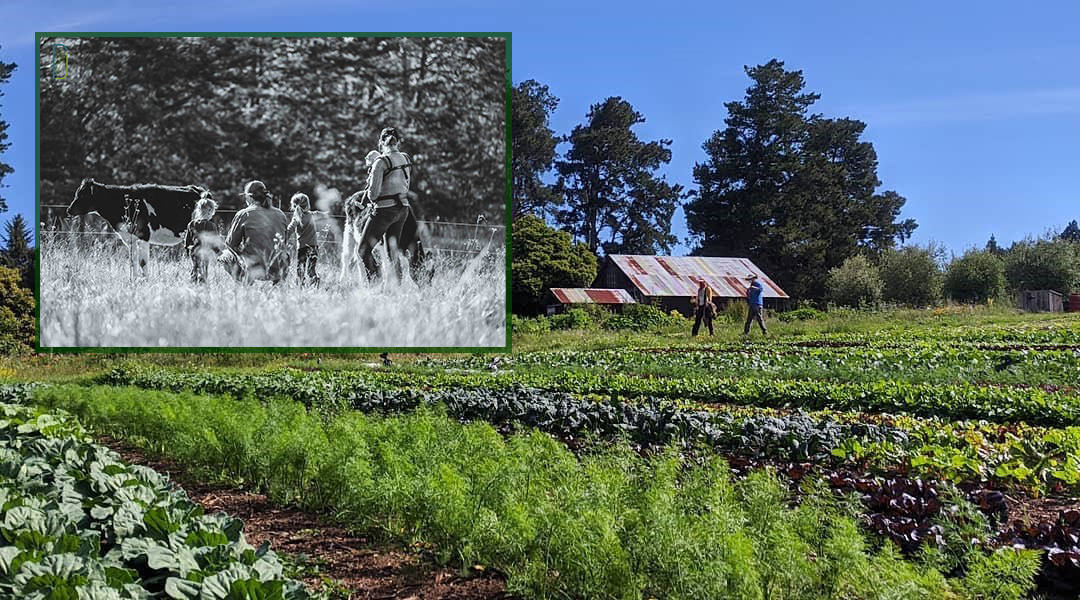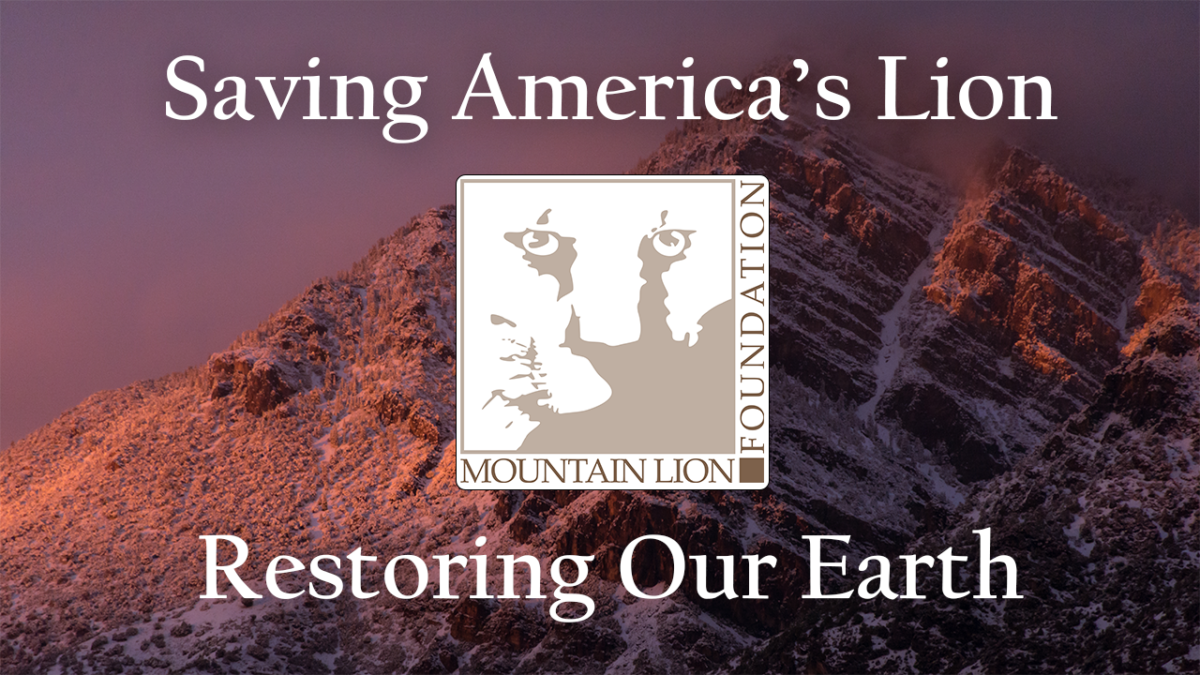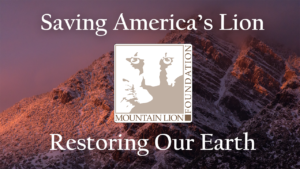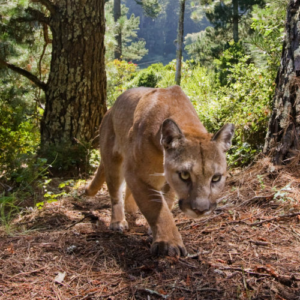Against the American Grain – Farms of Change in a Wild Community
May 20, 2021 @ 1:00PM — 2:30PM Pacific Time (US & Canada)
Join us for a conversation about growing food for humans in a changing climate – enhancing, protecting and preserving the wild landscape and building community in a multi species world.
If you missed it, watch it now!
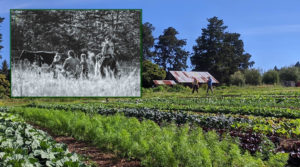
“Wildness is a medium for mindfulness, a
consciousness in which cultivation transforms into
community and harvest into communion through the
shared language of being—of life itself.”
― Daniel Firth Griffith, Wild Like Flowers
Join us for a conversation about growing food for humans in a changing climate – enhancing, protecting and preserving the wild landscape and building community in a multi species world. We will discuss emerging young farmer perspectives, who they are, what methods they use and why it matters to all of us.
When a person decides to live on the urban edge, amid the rural valleys and the forests, among the wild things, there is an inherent responsibility to coexist within the space shared with other species of plants and animals. This is not the way of traditional farming and ranching.
Farming and Ranching with the Wild is taking on a responsibility to care for the domestic plants and animals raised and the wild native plants and animals whose space is shared. A community is built that favors the health and well-being of people and animals on both sides of the fence.
These farmers are on opposite sides of the Great Mississippi, one on the northern coast of California the other in middle Virginia. They are among a growing number of young farmers and ranchers that have chosen to regenerate and appreciate the wild lands and the wild life within, whilst raising livestock and growing crops for their community and themselves.
Meet the Farmers:
Daniel Firth Griffith
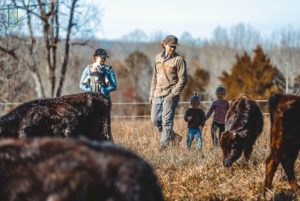 Daniel Firth Griffith is a storyteller, regenerative farmer, and a lover of the wildwoods. A first-generation farmer with a background in high-technology and entrepreneurship, Daniel’s life pivoted after being diagnosed with a life-threatening and degenerative genetic disease in 2012. He turned to farming—what ultimately emerged into regenerative conservation work—as “the last resort” in his health journey. What he found, however, was a life complete with abundance, joy, and health.
Daniel Firth Griffith is a storyteller, regenerative farmer, and a lover of the wildwoods. A first-generation farmer with a background in high-technology and entrepreneurship, Daniel’s life pivoted after being diagnosed with a life-threatening and degenerative genetic disease in 2012. He turned to farming—what ultimately emerged into regenerative conservation work—as “the last resort” in his health journey. What he found, however, was a life complete with abundance, joy, and health.
Daniel is the founder of Timshel Wildland, a 400-acre regenerative, process-led, and emergent conservation landscape in Central Virginia that partners with the wild world to co-create nutritious abundance—beef, pork, lamb, poultry, ancient vegetables, fruit, and peace. He is the Director of the Robinia Institute, a regional Hub of the Savory Institute that offers courses, consultations, and apprenticeships in the fields of natural citizenship, holistic management, and wild ecology. Under Daniel’s leadership, Robinia is pioneering land transition and regenerative scaling capital and consulting projects alongside bioregion-wide producer network emergence to co-create a uniformly diverse abundance in their region. Daniel is an acclaimed author, speaker, emergent conservationist, and an unworthy father to Elowyn, Tecumseh, and Sequoia.
His published works include: Boone: An Unfinished Portrait and Wild Like Flowers: The Restoration of Relationship Through Regeneration.
Gowan Batist
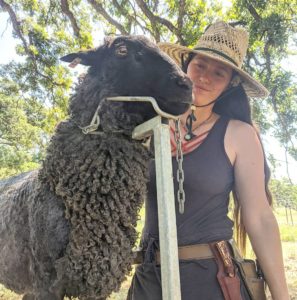 Agriculture and land management have always been an important part of Gowan Batist’s life. She is a Master Gardener, and studied Sustainable Agriculture through Oregon State University’s Extension Service. After graduating, she moved to Mendocino County to manage the farm-to-school program and the Noyo Food Forest. In 2013, Gowan Batist and her family founded Fortunate Farm. Together with North Coast Brewing Company, they purchased 40 acres–13 of which are owned by North Coast Brewing Company and 27 are owned by the Batist family. Gowan Batist manages the whole 40-acre farm as North Coast’s Sustainability Manager. The 40-acre farm located in Mendocino County produces heirloom vegetables and fresh cut flowers. To enhance the diversity of her farm, Batist also raises flock of sheep and sells the wool to local fiber artists.
Agriculture and land management have always been an important part of Gowan Batist’s life. She is a Master Gardener, and studied Sustainable Agriculture through Oregon State University’s Extension Service. After graduating, she moved to Mendocino County to manage the farm-to-school program and the Noyo Food Forest. In 2013, Gowan Batist and her family founded Fortunate Farm. Together with North Coast Brewing Company, they purchased 40 acres–13 of which are owned by North Coast Brewing Company and 27 are owned by the Batist family. Gowan Batist manages the whole 40-acre farm as North Coast’s Sustainability Manager. The 40-acre farm located in Mendocino County produces heirloom vegetables and fresh cut flowers. To enhance the diversity of her farm, Batist also raises flock of sheep and sells the wool to local fiber artists.
Fortunate Farm utilizes sustainable farming methods such as swale contour beds to improve water storage and protect against erosion. Rotational grazing naturally adds sheep manure to the soil and increases soil fertility, eliminating the need to manually add manure to the soil. The mission of her farm is to “Feed people nutritionally dense foods, sequester carbon and empower our community.”
Webinar Bonus!
Throughout the webinar a random drawing will take place giving away 10 of Daniel’s book Wild Like Flowers: The Restoration of Relationship Through Regeneration.
All webinar attendees will have the opportunity to receive 25% off the purchase price of an autographed copy of the book Wild Like Flowers: The Restoration of Relationship Through Regeneration.


